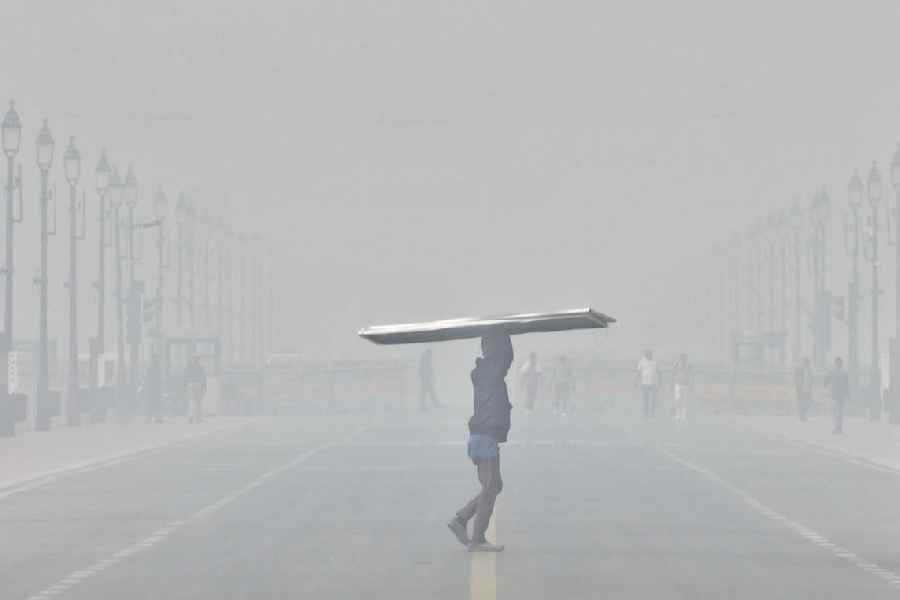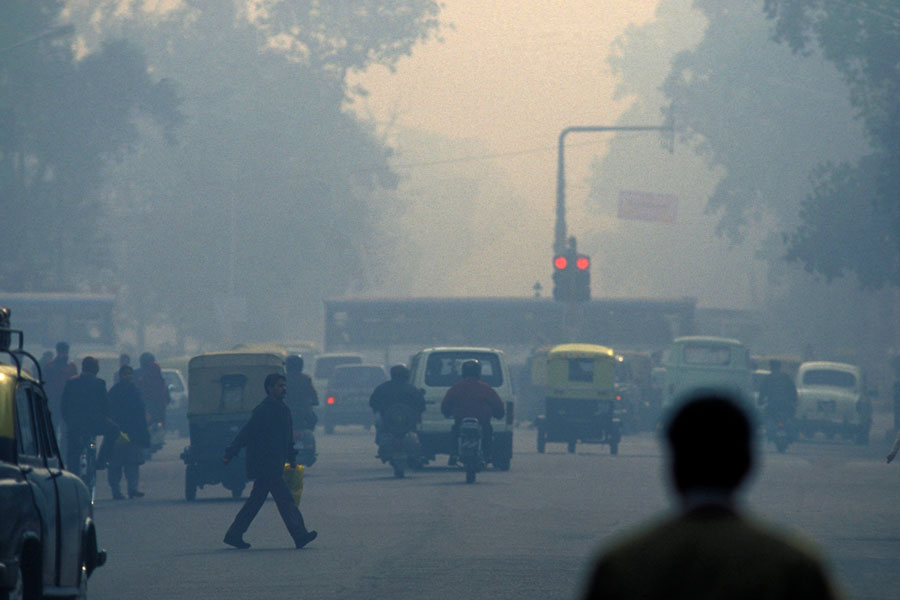The Supreme Court on Thursday said the direction to relax the stringent GRAP-4 curbs, meant to deal with severe air pollution levels to stage 2, would continue till further orders.
A bench of Justices Abhay S Oka and Augustine George Masih asked the Centre to consider identifying top experts in the field of environment, agriculture and other related fields for appointment in the Commission for Air Quality Management (CAQM), may be in the advisory capacity.
The Delhi government further informed the bench it had imposed the ban on firecrackers till January but was mulling to implement a round-the-year ban which would soon be notified.
The top court then directed the NCR states to place on record their decisions for enforcing the round-the-year firecrackers ban saying it was required not only to curb air pollution but also noise pollution.
The bench clarified the ban on firecrackers would include sale, manufacture, storage and use of firecrackers.
The top court has been hearing pleas seeking directions for the implementation of curbs to check air pollution in the Delhi-NCR region.
The bench allowed the CAQM to incorporate additional measures like mechanised sweeping of roads, controlled traffic movement, proper disposal of dust and other measures, which were earlier part of stage-3 of GRAP in stage 2.
The top court said it did not want any retired judge to be in the CAQM, even in advisory capacity as it may lead to conflict of interest as this court examines the work of the commission.
"We want top experts of different fields to be there in the CAQM. We don't want any retired judges to be there," it said, adding the Centre and other parties may suggest some names by the next date of hearing.
The bench further directed the Delhi and NCR states to ensure payment of subsistence allowance to construction workers, who were affected due to implementation of restrictions to check air pollution level from November 18 to December 5 (both days inclusive).
Senior advocate Shadan Farasat, appearing for Delhi government, said 90,000 workers were paid Rs 8,000 rupees each and additional registration process had been initiated with 20,000-odd construction workers coming forward so far.
The bench directed the Delhi and NCR state governments to ascertain the exact number of construction workers in their jurisdiction who were deprived of their income due to pollution curbs and file a compliance affidavit on January 3, 2025.
"We make it clear that we will continue to monitor this compliance till we are satisfied that every eligible worker has been paid the subsistence allowance," the bench told the counsel appearing for Delhi and NCR state governments.
The top court said on December 19 it would consider fixing a timeline and schedule for hearing various issues on the implementation of measures over the firecrackers ban, solid waste management rules and open air garbage burning apart from the issues suggested by the CAQM.
On December 5, with the improvement in Delhi-NCR's air quality, the top court allowed the CAQM to relax the stringent GRAP-4 curbs to stage 2.
It had, however, suggested the CAQM to include some additional measures of GRAP-3 in stage-2 curbs.
The top court had told the CAQM that stage 3 curbs would be introduced if the AQI crossed the 350 mark and stage-4 curbs if AQI crossed 400.
"While we permit the commission to do so we must record here that if the commission finds that the AQI goes above 350 as a precautionary measures under stage 3 have to be implemented and if AQI crosses 400 on a given day stage 4 measures have to be introduced," it had said.
On December 2, the top court refused to relax the emergency measures under GRAP-4 unless a consistent downward trend was noticed in the AQI level.
Observing that Delhi-NCR faced a similar situation every year between October and December, the top court previously proposed to go into all aspects that cause air pollution and find a permanent solution.
It then highlighted the "complete lack of coordination" among stakeholders including the Delhi government, Delhi police, Municipal Corporation of Delhi and pollution control committee in implementing the restrictions.
Except for the headline, this story has not been edited by The Telegraph Online staff and has been published from a syndicated feed.












